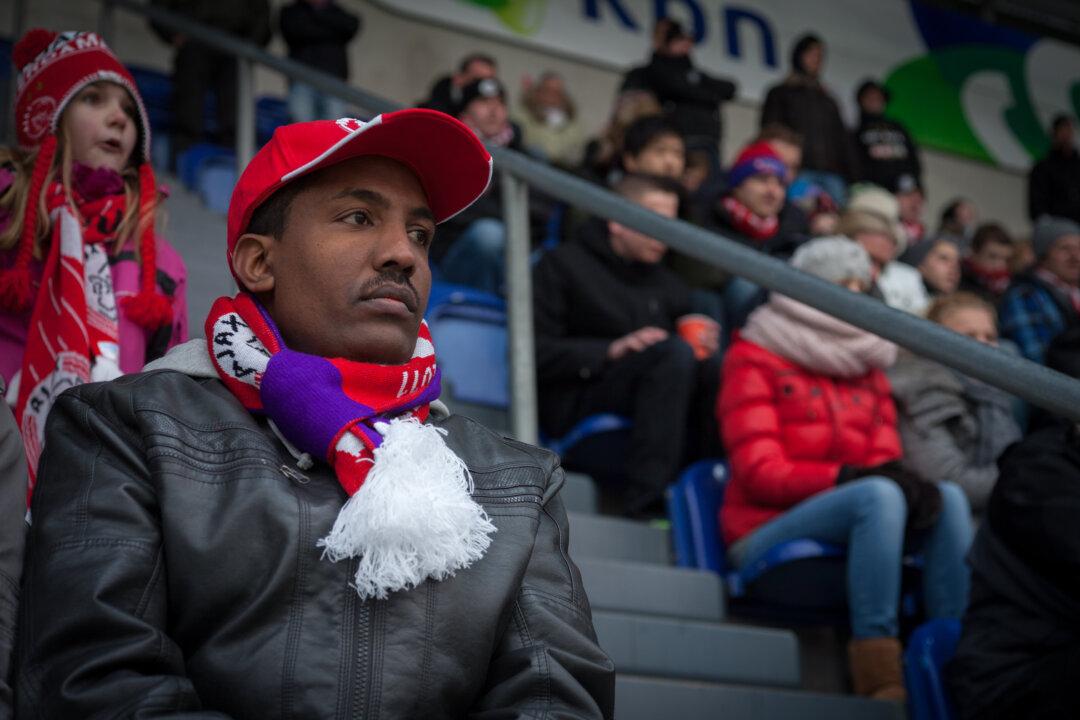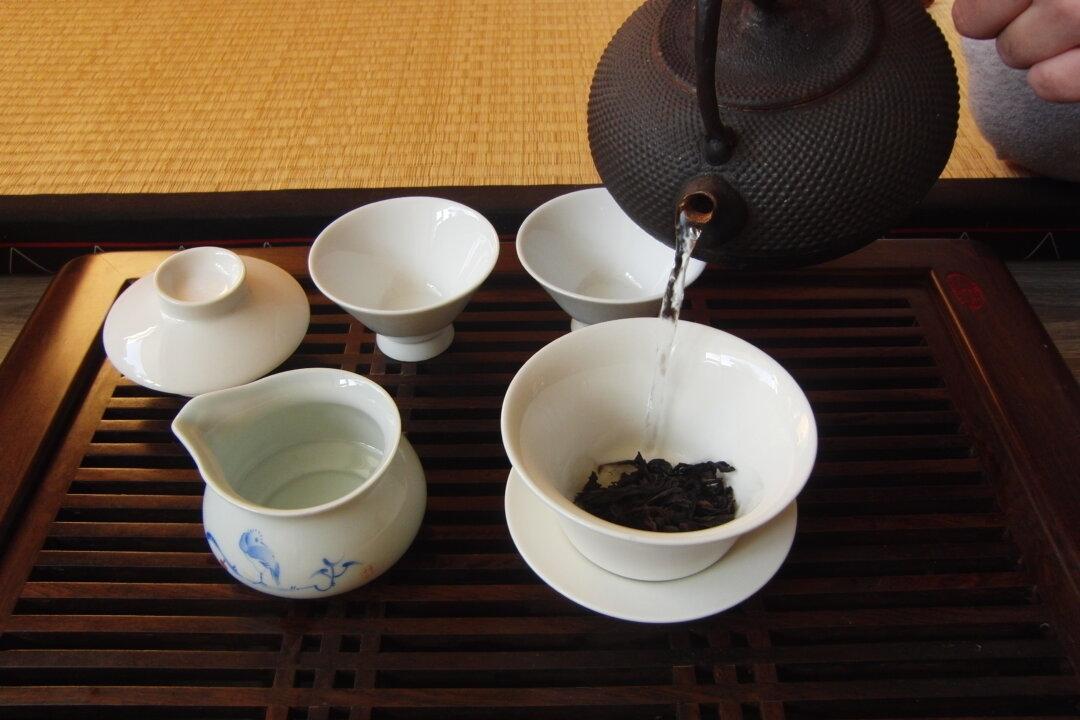HILVERSUM, The Netherlands—“Learn Dutch!” the former Dutch Minister of Immigration Gert Leers once told refugees after they expressed their gratitude in broken Dutch.
American filmmaker Miles Roston, the son of two refugees, followed four refugees from different backgrounds for a year in their struggle to fit into a changing Dutch society, once considered at the pinnacle of tolerance.
His film, Refugees: Who Needs Them? was released in May and explores the anti-immigrant sentiments that have become common in the Netherlands.
The stars are Fathi Ben Khalifa, an activist of the Amazigh ethnic group who escaped death threats from former Libyan President Moammar Gadhafi during the Amazigh rebellion; Fasil Agegnehu, an Ethiopian journalist sentenced to life imprisonment for condemning the fraudulent elections of 2005; Li Zhu Yin, a practitioner of the spiritual discipline Falun Gong, imprisoned by Chinese communist authorities and tortured for his beliefs; and Renuka Gurung, a young woman from the tiny kingdom of Bhutan and one of the approximately 100,000 ethnic Nepalis expelled from the country in the 1990s.
Roston said: “These are people who have to flee for their very lives, and often are standing up heroically to dictatorial governments, for their rights and the rights of other human beings.”
“From my experience, every nation, like every human being, has an ongoing journey of identity,” he said.
A Dutch Identity Crisis
When Roston moved to the Netherlands, exchanging “new Amsterdam [New York] for old Amsterdam,” he noticed an increasingly aggressive stance towards outsiders, especially non-Westerners.
Over the past few years, leaders across Europe started denouncing the multicultural society calling it a “failed experiment."
“Even mainstream politicians have been adopting such language, creating further divides in the population. Such rhetoric, criticizing whole groups of people, especially minorities, can have disastrous consequences—witness the obvious case of World War II, Bosnia, Rwanda, and on,” Roston said.
Notably, in the Netherlands, Geert Wilders called for a halt to immigration from Islamic countries. Wilders is the leader of the Party for Freedom (Partij voor de Vrijheid, PVV), which is known for its anti-immigrant stance. He warned of the perils of “Islamizing” Dutch society. He forecast a bleak future in which Dutch natives are subject to strict Sharia laws and have become second-rate citizens.
Many refugees from Islamic countries flee from precisely those fundamentalist Islamic regimes that Wilders warns about. In Roston’s documentary, a PVV-supporter attempts to explain, in an apologizing manner, to two Bhutanese refugees why he voted PVV. He said, essentially, it is what the Netherlands needs at the moment.
Roston noted the reluctance of PVV-supporters to openly announce their endorsement: “I searched high and low to find a voter who had these anti-immigrant views to be in our film. My own gut feeling is that in their heart of hearts, they feel uncomfortable with their own views on this. Otherwise, they’d happily be on camera.”
Many PVV-voters will say it is merely an economic matter. According to Dutch weekly magazine Elsevier, immigration has cost the Netherlands more than 200 billion euros ($260 billion) over the past 40 years and will cost 13 billion euros this year. With the eurozone economic woes, anti-immigration sentiments have found increasing support.
The European Commission, however, has said immigration will benefit the economy in the long run. By the year 2050, reports the Commission, Europe will need an additional 50 million workers to keep up current social spending.
Roston reflected: “In the Netherlands, to me, the identity crisis is about whether this is indeed a society embracing immigration and refugees, as it did during its Golden Age, which helped to make it such a successful nation, a country where the stock market and insurance were invented. Or whether it is a closed society.”
Fitting into Dutch Society
Despite the hostile climate, the Netherlands is still inviting or resettling about 500 refugees a year.
“They seemed the perfect group to focus on—people who were invited and yet criticized,” Roston said.
The majority of refugees did not want to leave their homelands, but were forced to, often leaving their families behind. Upon arrival in the Netherlands, their education, knowledge, and skills were reduced to zero value and they had start life from scratch in an asylum center.
From day one, refugees are told the Dutch language is the key to Dutch society and their future. Learning Dutch, spoken by only 28 million people around the world, suddenly becomes their main mission and task.
“Gezellig,” said Khalifa as part of a role-playing exercise during Dutch class. Gezellig means something like “cozy” or “snug,” held to be a Dutch national character trait.
But Khalifa’s dormitory in the Amersfoort refugee camp appeared anything but snug. Khalifa watched the Arab Spring unfold in his homeland on a small television in his stark dorm room in the Netherlands.
“I came to Holland to start a life from the beginning, at zero,” said Khalifa, who was a chemical engineer back in Libya.
Yin, a Chinese Falun Gong practitioner, was persecuted in China for his belief and had to flee the country with his wife and child. In the Netherlands, he and his family were assigned a house in a small fishing village, Urk, located in a remote corner of the country.
Urk happens to be one of the most religious and closed communities in the Netherlands.
“I know Christianity is very good, but I hope my children can have the same belief as me,” Yin said, since he fled China for freedom of belief.
After the Ethiopian journalist Agegnehu was released from prison, his mother urged him to flee the country. He reluctantly heeded his mother’s advice.
During his stay in the Netherlands, however, doubt often got the best of him.
“To be honest, when I came here, I felt a little depressed,” Agegnehu said. “I can’t fight the [Ethiopian] government from six thousand miles away.”
But he gradually learned to accept his fate and later received notification that he was given a life sentence in absentia by the Ethiopian court, further confirming that it was wise to follow the advice of his mother, who had already passed away at that time.
In the documentary, the refugees, in addition to Dutch lessons, visit typical Dutch attractions and try their best to adopt Dutch habits.
In one scene, at the Anne Frank House, Agegnehu and Yin compare the space where Anne Frank lived to the prisons in which they were detained in their homelands.
Bringing Truth From Foreign Lands
Almost all the refugees in the film make great efforts to expose the crimes of the regimes from which they fled.
Yin joins other Falun Gong practitioners at Dam Square in Amsterdam to tell people about the persecution in China. Falun Gong, a meditation practice that also teaches truthfulness, compassion, and tolerance, according to the faluninfo.net website, has about 20 million to 40 million practitioners in China. More than 3,700 have been killed and more than 87,000 have been tortured by authorities.
Khalifa became president of the World Amazigh Congress to protect the identity and rights of the marginalized North African ethnic group. Agegnehu established his own television station in Amsterdam to broadcast independent news into Ethiopia.
Roston explained: “Firstly, they do want to see things improve in their home countries, so that everyone can have their human rights respected. Secondly, they do want to contribute to their new homes—and they do.”
European Parliament Vice President Edward McMillan-Scott said refugees play an important role in bringing to Europe knowledge of the truth about societies they have left.
Culturally, they also enrich Dutch society, said Roston: “Refugees and immigrants have always contributed to Dutch society culturally. They bring another perspective. This is true also for the economy, and the Netherlands is a society that needs trade with other countries.”
“And they are brave, outspoken people—the kind of people you want in your community,” he added.
“In the current fiscal climate, I fear that it will get ever harder for immigrants. But I would hope for more openness. It makes life so much more exciting and creative for everyone. It’s to everyone’s benefit,” Roston said. “If this film makes a small contribution to people being more open—and, of course, enjoying themselves at the same time—that would make me happy.”



